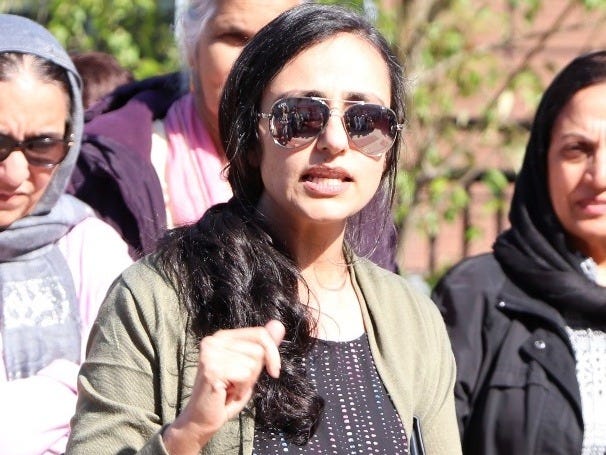Sharanjit Sandhra: It Is Time for Change, Reflections From Sikh Women In Sikh Studies (Part 1)
Part one of a four-part series from four Sikh scholars who identify as women
This reflection is part one in a four-part series from four Sikh scholars - Sharanjit Kaur Sandhra, Asha Sawhney, Dr. Kamal Arora, and Manvinder Gill - who identify as women.
Below is the first candid reflection based on the panel and on patriarchy within Sikh academia.
Sharanjit Kaur Sandhra
2.5 min. read
On January ninth, 2021, I was privileged to experience greatness within a dialogue on Sikhi and patriarchy through the experiences of women scholars. This was one of the first times that I felt safe, within a sangat, including Sikhs and non-Sikhs all around the world, as we shared our critique, our exasperation, and our expectations for the sangat to change.
Joined by panelists Dr. Kamal Arora, Asha Sawhney, and Manvinder Kaur Gill, I felt for the first time that there was hope that we can evolve to ask compelling questions and create the spaces and platforms to support Sikh women scholars and professionals.
I know that is saying a lot, but hear me out.
The organization of this panel had been triggered by several things I noticed on social media in particular, but also in the world of academia and journalism, and healthcare, and media, and law, (insert any other career field imaginable here) – a world where Sikh women professionals continue to be relegated to the margins. By those in our own panth, by men in our own panth. And yes, by women in our panth as well.
This is what the machine of patriarchy is - it is a machine, held together by culture, by systems, by ideals, by stigmas, by expectations that place our bodies at the forefront of pain and open to dissection and open to targeting and humiliation or dismissal. Patriarchy is everywhere, not just in Sikhi of course, but we are here to discuss the unique aspects of Sikhi.
What that means to me is that many actually have not been reading, listening, or following the right people. And yes, that includes those of you who have made Sikhi a brand for consumption on social media, but cannot afford support or allyship to us and our actual expertise platforms. We see you – and we can smell you from a mile away, trust me. It is the same when we can see and sense and feel Sikh men and organizations who get it, and who are here as our allies.
In the most recent podcast recently with the Sikh Archive, Dr. Satwinder Kaur Bains – my mentor reminded us that “the inequities come from a partner unwilling to change.” If these partners are unwilling to change, then Sikhi’s patriarchy will not change.
As a group of women scholars in a range of different fields and with unique expertise in academia, we discussed the ways in which we can work towards change in our panth. We had this conversation with the deep gratitude and acknowledgment of the shoulders of the Sikh women we stand upon, the Satwinder Bains’ of the world, the Inni Kaur’s of the world, the Nikky-Guninder Kaur Singhs of the world. Not the white women who have learned Sikhi but maintained so much gatekeeping, but the Sikh women who have fought it all, and so much more before us.
There were resources and names shared within the chat and virtual sangat and there were ideas shared on how we can change. If there is one idea that I can emphasize in the short span that I have in this write-up, it is this – that we need so much more of this. We need Sikh women to mentor young Sikh men, we need Sikh women to mentor Sikh women. So step up, read more about our research, and work towards creating the true feminist practice of Sikhi that our revolutionary faith was supposed to be.
Sharanjit Kaur Sandhra is a PhD candidate in History at UBC, sessional instructor in the History department at the University of the Fraser Valley (UFV) in Abbotsford, BC, Coordinator of the South Asian Studies Institute at UFV and co-curator of exhibits at the Sikh Heritage Museum, National Historic Site, Gur Sikh Temple in Abbotsford, BC., Canada. She is a passionate anti-racist activist and promotes Sikh public history discourse and its intersections across many fields. She is an advisor for the Poetic Justice Foundation, past council member of the BC Museums Association, and currently a Board member with the Pacific Canada Heritage Centre - Museum of Migration Society in BC. You can follow Sharanjit on Twitter at @SharnFTC.
Baaz is home to opinions, ideas, and original reporting for the Sikh and Punjabi diaspora. Support us by subscribing. Find us on Twitter, Instagram, and Facebook at @BaazNewsOrg. If you would like to submit a written piece for consideration please email us at editor@baaznews.org.


